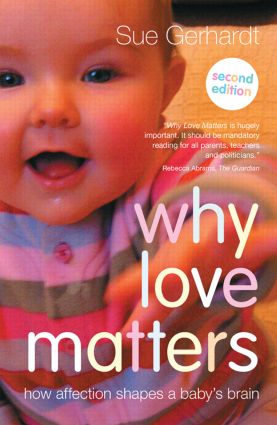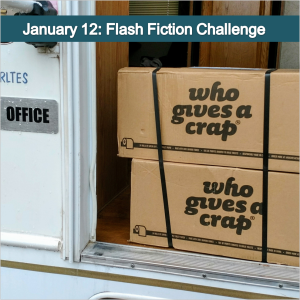| Knowing I’ve never had children, readers have expressed surprise that I’m interested in reading and writing about mothers and babies. To me, however, it makes sense politically, (past) professionally and personally. A socialist by inclination, I believe in collective responsibility for the vulnerable, and who could be more vulnerable than a neonate? In psychology, although there are different and opposing models of the impact of early months and years, curiosity about the human mind necessitates at least a passing interest in our origins. Finally, I’m very much in touch with how it feels to be totally dependent on someone who doesn’t heed my cries. So, yes, I give a crap about attentiveness to babies, and not just when they’ve soiled their nappies. |
I often wonder if we might build a more tolerant society if more members felt secure right from the start, but pigs will fly before we see a political manifesto founded on ensuring babies get the attention they need in those crucial first three years of life. Instead, childcare workers are underpaid and undervalued, and the conflict mothers feel between work and home is left for individuals to resolve (or not) themselves. But you won’t find me campaigning for what I believe in. While passion can be motivating, you need a certain distance between the personal and political to be persuasive.
Although I’ve been edging towards it through various posts on attachment theory, setting out my stall even here on my own blog feels risky because it touches on my own untold and untellable story. But it feeds into my fiction. When I began writing my forthcoming second novel, Underneath, the feelings of a neglected baby were very much in my mind. I’d been interested in trying to represent that uncoordinated non-verbal experience in words. As it turned out, my ambition was bigger than my talent and I had to set it aside. But something of that state of mind (or mindlessness) is very present in the novel, both in the narrator, Steve, who began life with a depressed mother and in the extreme vulnerability and dependency of the woman he imprisons in the cellar. The novel also explores issues around an individual’s suitability or unsuitability to adequately undertake a parental role.
Did you pick up on that word explores, much overused here on Annecdotal? But exploring controversial issues is what I think fiction is about. In my novels and short stories, I can set my sensitivities aside in a way I'm insufficiently robust to manage in live debate, and play with different perspectives on an issue close to my heart. (And even that implies much more control and planning than actually occurs.) Far from wanting to make my characters a mouthpiece for my views, I relish giving them free rein to voice what they think. If I were to bare my soul in non-fiction or memoir, I’d feel extra vulnerable if readers challenged my take on something so fundamental. If someone finds something in my fiction I haven’t consciously put there, I take pride that I’ve done it right.
Besides, I want to engage with my readers on an emotional level. That’s where an ability to mine the depths of vulnerability, and emerge unscathed, becomes an asset. (Unfortunately, just as I’m getting the hang of how to do that, politics moves into the post-truth era where we need reason more than ever. But that’s another story.)
| So why raise this now? Well, because Charli’s cracking the whip again, asking the Rough Writers and friends to contribute a 99-word story that expresses a strong concern, something to give a crap about. Apologies for repeating the theme from another flash fiction piece, At home on the tennis court? But that’s the virtue of writing fiction embedded in the personal, you keep on telling it different ways until you finally manage to say what really matters – or not. |
Default setting
Dragging her group’s attention away from the sunbathers, Grace launched into her spiel.
“Can you speak up a bit?” an elderly man grumbled.
“Did you mean 1907?” another asked.
“Sorry!” Grace forced a smile. “The monument was erected in 1709.”
Her audience glowered at a mother star-fished on the grass, as her baby wailed in its pram. At the back, a woman laughed. “What a racket! Put it in its room and close the door on it.”
Grace stumbled on, her expertise fading as her mind reverted to its original settings. Helpless as a bleating baby, abandoned, scared, alone.























 RSS Feed
RSS Feed





















